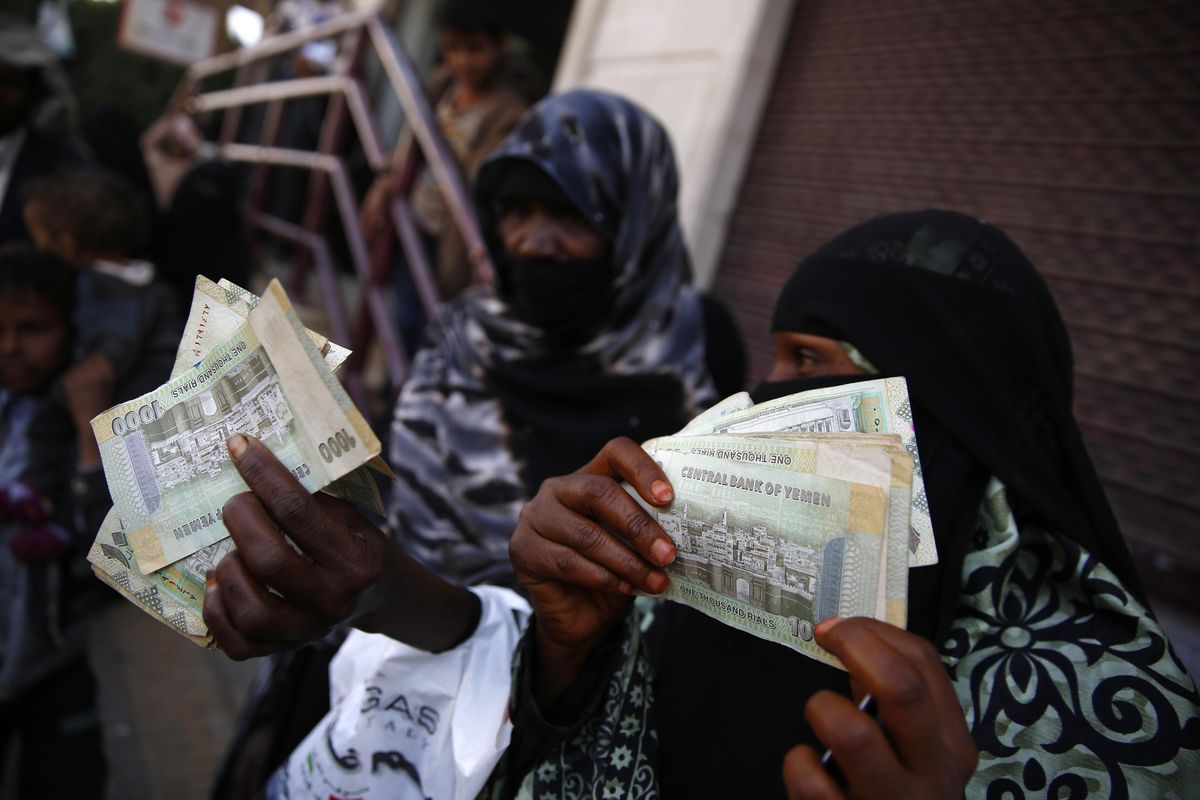Cash crisis exposes rift within Saudi-led coalition in Yemen

SANAA, Yemen – Yemen’s Central Bank says the Saudi-led coalition is “strangling” the economy by preventing planes from flying in newly minted cash, reflecting a struggle between the government and the United Arab Emirates, key members of the military alliance.
Both are at war with the Shiite Houthi rebels, who control much of northern Yemen, including the capital, Sanaa. But the UAE is believed to be at odds with President Abed Rabbo Mansour Hadi over his embrace of a local affiliate of the Muslim Brotherhood group, and fighters loyal to the two sides have clashed in recent months.
In a strongly worded statement issued Sunday, Central Bank Governor Mansr al-Qaiti, who was appointed by Hadi, accused the coalition of banning 13 flights carrying money printed in Russia to the southern city of Aden, where the government is based, since April. He accused the coalition of “strangling the Yemeni economy” and denying it “needed liquidity.”
For the last two years, Hadi’s government has been confined to Aden. As the Saudi-led coalition has waged an air campaign against the Houthis and their allies, the UAE has established a military footprint across the south, partnering with local allies.
In the central city of Taiz, fighters allied with the Emirates have battled others aligned with Hadi’s government despite the city being besieged by the Houthis for the past two years.
At the heart of the dispute is Hadi’s alliance with the Islah party, the Yemeni branch of the Muslim Brotherhood, a pan-Arab organization that the UAE and other Gulf countries view as a threat.
The wrangling began when Hadi removed his onetime vice president and prime minister, Khaled Bahah, who was seen as an advocate of reconciliation with the Houthis and who was backed by the UAE. Hadi replaced him with Ali Mohsen al-Ahmar, a powerful military commander who is closely linked to Islah.
At a recent meeting with Yemeni tribal leaders in the Saudi capital, Riyadh, Hadi accused the Emiratis of “dictating” candidates for security and military posts, according to two tribal leaders and a security official who attended the gathering. Hadi said he used to comply with UAE wishes, but began to oppose them after their “meddling crossed all lines,” including attempts to remove Islah figures from the government and military, the attendees said.
Hadi said he complained to the Saudis, who have led the intervention on behalf of his government, but received no response, according to the attendees, who agreed to discuss the closed-door meeting on condition of anonymity.
Yemen’s war has killed over 10,000 civilians and displaced 3 million people, and pushed the country to the brink of famine.
An outbreak of cholera has killed 2,000 people and infected an estimated 500,000, the World Health Organization said Monday. Half the country’s health facilities are out of service, including many that were bombed by the coalition. Government workers, including medics and garbage collectors, have not received their salaries in nearly a year, further hindering efforts to combat the cholera outbreak.